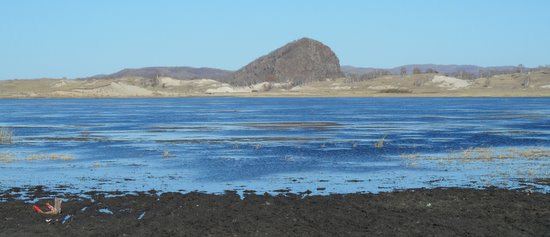
Weichang Scenic Area
“Do you want to ride my mother?”
The old man tapped on the car window insistently.
“Do you want to ride my mother?”
He points towards a smiling elderly woman, holding the reins of a horse.
I’m a little surprised to realise that I can understand his heavy Chinese accent, until I realise I can’t and that he’s pointing at his horse. Mother and horse are different tones of the same word, mā and mǎ. Horses don’t come up in conversation that often, but then neither does mother riding. An easy, but potentially awkward mistake to make in a tonal language.
“You want to ride my horse”. More of a statement than a question.
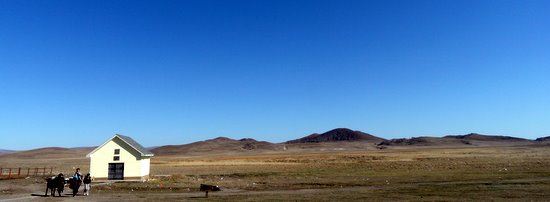
We’d just arrived in Weichang Scenic Area and I’m not entirely comfortable around horses. There are a few hundred horses around me, in various states of discomfort. Most look well cared for; a few of the older ones look like they need a sandwich to put some meat on their clearly visible rib cages.
We’d spent the previous day driving from Beijing to Weichang, and this morning left the warmth of our hotel to venture into the sub-zero temperatures and continue the extra hour through the woods into the actual Scenic Area.
Mulan Weichang is located in the northernmost part of Hebei, on the border of Inner Mongolia. During the Qing Dynasty (1644-1911), the vast grassland dotted with lakes served as the hunting ground of Emperor Kangxi. Today even less people live here and it’s primarily a tourist destination for those looking to get some fresh air and natural food.
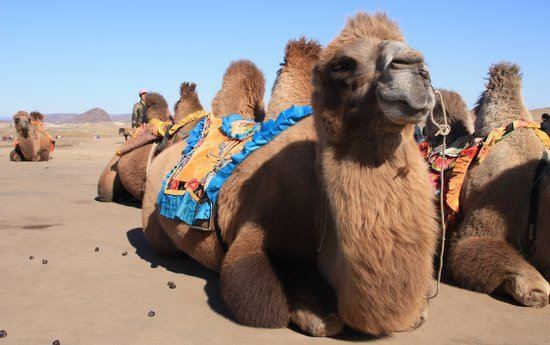
Camel at Weichang
Having refused the horses (and his mother) the man ushers us towards the car park. Sitting regally in the centre of the car park are some very well groomed camels of the two-hump variety so common here, up near Inner Mongolia. Uncharacteristically, they aren’t groaning or spitting and seem happy with their lot in life, and only really seem bothered when the noisy quad bikes roar past.
“You want to ride a camel?” “No thanks”
“You want to ride a quad bike?” “Maybe later”
“Do you want to Dàpào?” I have to look this up in my dictionary:
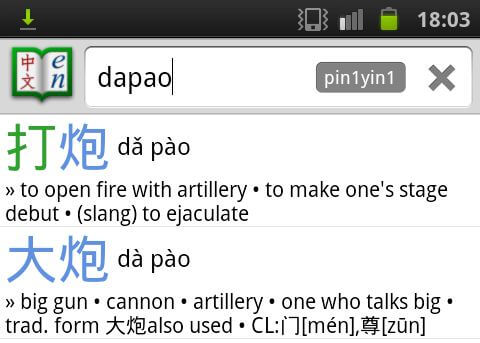
As his mother isn’t in sight, I ignore the slang definition: “Sorry, I misunderstood. I thought you said cannon”.
I’m led to a row of three cannons and handed a heavy ball. It’s not a real cannon sadly (or thankfully given the safety record in much of China) but now I’m here I may as well. The cannon launches the ball with a mild ‘phutting’ noise that suggests there’s not much gunpowder involved and it cleanly hits the target.
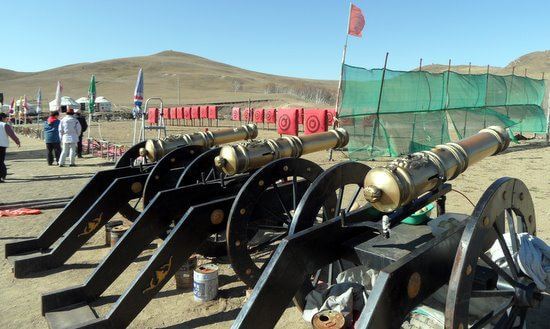
Back at the car park, under the watchful eye of the camels, I’m asked if I want to ride a horse. Instead, we agree to take a battered pony cart down to the lake. The ride is short but uncomfortable, bouncing along a well-worn track. Midway he stops to see if I’d rather ride the horse. As more people arrive and the dusty ground starts to get whipped up by the horse’s hooves the whole area takes on a post-apocalyptic feel. The tattered homemade parasols of the women increase the low-tech Mad Max vibe, as they walk between the buildings constructed of logs and twine. A passing sheep pulls a little cart with no obvious destination in mind.
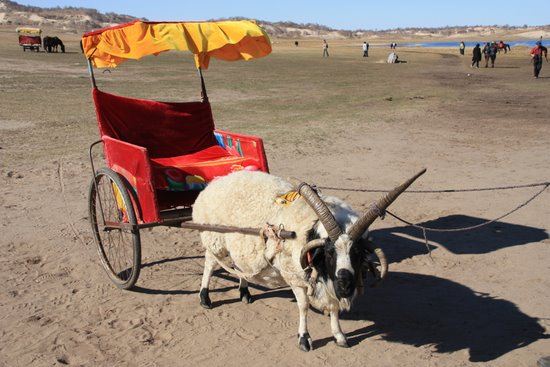
Arriving at the lake, we find not a lot. There’s a lake in front of a small hill. Nobody seems interested in circling round the lake for a closer look at the hill. A few ducks paddle aimlessly in the deep blue waters and I stand around wondering if I’m missing something. A young woman sidles up behind me and asks if I’d like a ride on a horse.
Refusing, she still goes on to tell me that the lakes in Mulan Weichang are called Paozi, and this largest one is called General Paozi. It’s famous as the site of the Battle of Ulaan Butun, between the Dzungars and Qing forces in 1690. This seems the extent of her knowledge, or at least willingness to impart any more details.
Looking around I can see how it looks quite majestic in a tourist brochure, but the reality is quite different.
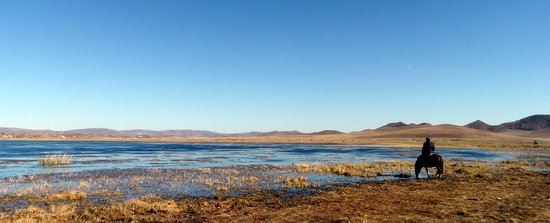
Brochure shot of Weichang
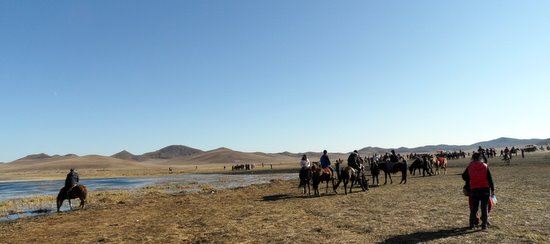
How it actually looks
Despite the rising sun, the cold wind is leaving us rather chilly. Ignoring another offer of a horse ride, we take the cart back. I head into one of the restaurants, housed in a dilapidated yurt. The only hot drink on the menu is yak milk tea: a fatty, almost greasy, white drink that I’ve tried before under worse conditions and just can’t get enthused over. I settle for hot water and dream of hot chocolate, hot toast and a hot bath.
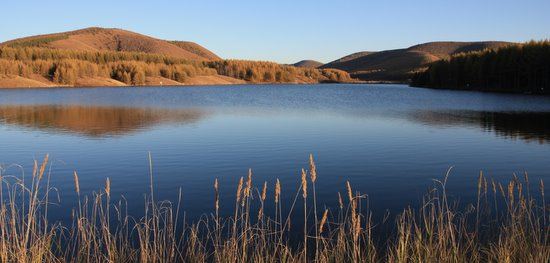
A twenty-minute drive gets us to Xida Paozi, or Princess Lake. The still blue waters reflect the surrounding birch trees and for the first time today, everything is peaceful.
At first, I think we’re the only people there, but a man emerges from the trees and walks towards us with a big grin on his face.
“You want to ride my horse?”






Lovely read, thanks. I would like to ride the camel!
Incredible read! Loved this. An area I’d like to get to. Been into Mongolia so if the yak tea is same as their tea, I will enjoy it.
Thanks Jim. I’ve tried the milky tea a few times, but since coming to China with all it’s spicy food my taste buds seem to have surrendered and I’ve lost all enjoyment of delicately flavoured items.
Haha! i really want to go to Mongolia… and I actually want to ride a horse! But i can see how the constant questions and get tiresome!
i wonder how that sheep can pull the cart if someone is in it?! but this is a great article – and photos!
I’m glad he meant cannon rather than ‘ejaculate’. That might have made for an awkward conversation :-p
And “Do you want to ride mother?” Gold!